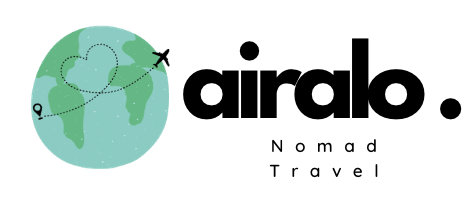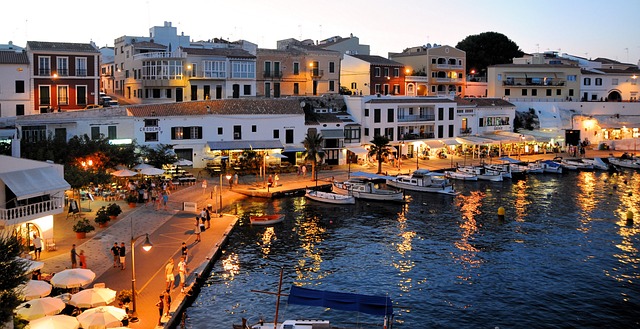
Spain is an ideal destination for many digital nomads and remote workers, thanks to its rich culture, pleasant climate and relatively low cost of living. While big cities like Barcelona and Madrid are popular for their cosmopolitan environment and good infrastructure, they tend to have a higher cost of living. Therefore, many remote workers choose other cities in Spain in search of a more cost-effective living experience. Here are some of the cheapest cities in Spain for remote workers.
Valencia – the ideal city for remote workers
Valencia, Spain’s third-largest city, sits on the Mediterranean coast and attracts thousands of digital nomads and remote workers with its stunning beaches, warm climate and rich cultural scene. Compared to other large cities in Spain, such as Madrid and Barcelona, the cost of living in Valencia is relatively low, especially when it comes to accommodation and daily expenses, making it an ideal choice for remote workers.
1. Accommodation Cost: Affordable Living Options
In Valencia, remote workers have access to relatively affordable housing options. The rent for a one-bedroom apartment in the city center is approximately 600 to 800 euros per month, which is nearly half cheaper than in Madrid and Barcelona. If you choose a quieter suburb or a place slightly away from the city, the rent can drop to less than 500 euros per month, and the living environment in these areas is more peaceful and suitable for long-term living.
- city center rent: 600-800 euros/month (one-bedroom apartment)
- suburban rent: Around 500 euros/month (one-bedroom apartment)
Valencia’s accommodation market also has a relatively diverse range of options, ranging from modern apartments to traditional Spanish-style houses. Remote workers can choose the most suitable place to live based on their needs and budget.
2. Shared office space: rich resources and community
The number of coworking spaces in Valencia is increasing year by year, and these spaces not only offer modern working facilities, but also provide remote workers with a good social and entrepreneurial network. Many coworking spaces feature high-speed internet, private offices, conference rooms, and open office areas to suit different types of work needs.
- cost: The monthly lease of most shared office spaces is 150 to 300 euros, which is much cheaper compared to Madrid and Barcelona.
- Network and resources: These spaces often host entrepreneur gatherings, industry discussions and project collaboration activities to help remote workers expand their network and business opportunities.
Valencia’s innovation scene is booming, with several startup accelerators and technology incubators in the city supporting the growth of creative and technology-based businesses. For remote workers, joining these resource-rich communities can provide them with more support and opportunities.
3. Cost of living: Cheap and efficient
The cost of living in Valencia is relatively low compared to other major Spanish cities, making it easier for remote workers to manage their personal budgets.
- Catering expenses: The per capita consumption of a regular meal in an ordinary restaurant in the city is about 10 to 15 euros. In Valencia, local dining prices are generally low, and dining out or takeout are very economical options.
- supermarket shopping: The prices of food ingredients and daily necessities are relatively affordable, especially for locally produced foods such as vegetables and fruits. Compared to Barcelona and Madrid, the overall prices of supermarket goods in Valencia are lower.
- public transportation: Valencia has an excellent public transportation system, including metro, buses and trams, at very affordable prices. A monthly pass costs about 40 euros, making travel expenses for remote workers very low compared to transportation costs in big cities.
- daily expenses: Entertainment in Valencia is also highly cost-effective, with many museums, art galleries and public spaces offering free admission. In addition, gyms and sports facilities in the city are more economical than in other big cities.
4. Climate and lifestyle: Pleasant natural environment
One of Valencia’s great advantages is its climate, which is warm and pleasant year-round, especially for sun-loving remote workers. The city’s summers are warm but not sweltering, and its winters are mild, suitable for outdoor activities. Valencia’s beaches are not far from the city center, so remote workers can enjoy some relaxing time on the beach after work.
- climate: Valencia’s year-round temperatures typically range between 18°C and 28°C, making it ideal for outdoor activities.
- Beach & Leisure: Valencia’s beaches are one of the city’s highlights, and remote workers can take to the seaside after get off work to walk, run, or simply enjoy the Mediterranean sun.
5. Social and Cultural Atmosphere: Positive Remote Worker Community
Valencia has a very lively cultural scene, attracting many young people, students and entrepreneurs. There are several cafes and public spaces in the city that have become a gathering place for remote workers and freelancers. In these venues, digital nomads can exchange ideas, collaborate on projects, and even share work experiences with people from around the world.
- Entrepreneurship and innovation atmosphere: Valencia has multiple entrepreneurial accelerators and technology incubators, providing a wide range of resources and training to help entrepreneurs realize their dreams.
- social events: There are a wealth of social activities, entrepreneurial gatherings and cultural events in the city, where remote workers can make new friends and expand their connections.
Granada – the ideal city for remote work
Granada, located in the Andalusia region of Spain, is a historic and picturesque city. Known for its majestic Alhambra and fascinating Moorish heritage, Granada attracts a large number of tourists and has become an ideal place to live for many remote workers. The cost of living in Granada is relatively low compared to other large cities in Spain, especially when it comes to housing and daily expenses, making it a popular choice for digital nomads and remote workers on a budget.
1. Accommodation costs: great value housing options
The housing market in Granada is relatively affordable, especially compared to larger cities such as Madrid and Barcelona. Rent for a one-bedroom apartment in the city center ranges from approximately 400 to 600 euros per month. If you choose to live on the outskirts of the city or in a quieter neighborhood, the rent may be further reduced to around 300 euros/month. For remote workers, such rent levels can significantly reduce the stress of life, especially those digital nomads who rely on freelance income.
- city center rent: 400-600 euros/month (one-bedroom apartment)
- suburban rent: Around 300 euros/month (one-bedroom apartment)
Granada’s housing options are not only affordable but also very pleasant. There are many historic buildings and picturesque alleys in the city, which are full of strong cultural atmosphere. Granada is an ideal choice for remote workers who like to immerse themselves in local culture and enjoy historical sites.
2. Shared office space: convenient working environment
Although there are fewer shared office spaces in Granada than in Madrid and Barcelona, in recent years, with the increase in remote workers, Granada has gradually developed a number of high-quality shared office spaces. The city’s coworking spaces offer high-speed internet, comfortable work environments and regular social events for remote workers who need a flexible work environment.
- cost: Most coworking spaces cost around 150 to 250 euros per month. This price is much cheaper than in major Spanish cities, providing a very cost-effective option for remote workers.
- networking opportunities: Granada’s shared office spaces usually host various social activities, such as entrepreneurial salons, project cooperation exchanges, etc., which provide remote workers with opportunities to interact and collaborate with other entrepreneurs and freelancers.
3. Cost of living: low and efficient daily expenses
The cost of daily living in Granada is relatively low, allowing remote workers to enjoy a high quality of life on a smaller budget.
- Catering consumption: The per capita consumption in restaurants and cafes in Granada is about 8 to 12 euros, which is more affordable than dining prices in Madrid and Barcelona. You can try fresh Andalusian cuisine in local eateries without having to spend a fortune.
- supermarket shopping: Food prices in Granada are also very affordable, especially for locally produced produce such as olive oil, fresh fruits and vegetables. Many residents and remote workers choose to buy ingredients at local markets in order to cook their own meals, saving money while still tasting fresh food.
- public transportation: Granada’s public transportation system is relatively simple and suitable for daily travel. A monthly pass costs about 30 euros, which is much cheaper than in Madrid and Barcelona. In addition, Granada is a medium-sized city and many places can be reached on foot, further reducing transportation costs.
4. Climate and lifestyle: Pleasant four-season climate
Granada’s climate is pleasant and suitable for year-round living. Winters are warm, with temperatures typically between 10°C and 16°C, making them ideal for remote workers who don’t like freezing weather. Summers are relatively cooler, and while daytime temperatures may rise, nighttime temperatures typically drop into comfortable ranges. The natural landscape around Granada is also great for outdoor activities, and remote workers can go hiking, mountain climbing, or visit local natural attractions on weekends or after get off work.
- Climate characteristics: Warm in winter, cool in summer, and suitable for living all year round.
- outdoor activities: There are rich natural resources around Granada, which can be used for mountain climbing, hiking and other activities. It is suitable for remote workers who like outdoor sports.
5. Cultural and social atmosphere: a vibrant student city
As a university town, Granada is rich in social and cultural activities. The city has a large population of students and young people, creating a vibrant and creative environment. The many cultural events here, such as concerts, art exhibitions, festivals, etc., are great opportunities for remote workers to relax and make friends after work. Whether in the city center squares or in traditional Spanish bars, Granada offers a wealth of social options.
- cultural activities: Granada has a rich cultural scene, such as music, art, and dance performances, which provides remote workers with many ways to relax.
- networking opportunities: The city’s young population and student community provide a lively social atmosphere for remote workers to easily integrate into local society.
Sevilla – the ideal place to experience Spanish tradition and low cost of living
Seville is a jewel in southern Spain, famous for its rich historical background, passionate flamenco dance, and ancient architecture. The climate here is warm and pleasant, with mild winters and hot summers, making it ideal for remote workers who prefer sunshine and warm weather. Although Seville has a lower cost of living, it has a strong cultural scene, making it an ideal choice for remote workers who want to immerse themselves in the traditional Spanish way of life. Seville offers more cost-effective living options than other big cities in Spain, making it an ideal destination for remote workers who are on a budget but still want to experience Spain’s unique charm.
1. Accommodation costs: cost-effective housing options
Rent in Seville is relatively low, especially in residential areas outside the city center and popular areas. Monthly rent for a one-bedroom apartment typically ranges from 500 to 700 euros, well below rents in big cities such as Barcelona and Madrid. You can find many historic buildings converted into apartments around the city, retaining traditional Spanish style but full of modern comforts. For remote workers, choosing to rent in the city center or an area with a strong cultural atmosphere can not only save accommodation costs, but also enjoy the charming city landscape after work.
- city center rent: 500-700 euros/month (one-bedroom apartment)
- suburban rent: approx. 450€/month (one-bedroom apartment)
In Seville, many apartments feature modern amenities and quiet surroundings, perfect for remote workers who need a quiet space to work. In addition, the city has convenient transportation and many shopping, dining and entertainment venues within walking distance, making it easier for you to integrate into the local rhythm of life.
2. Shared office space: flexible working environment
Although there aren’t as many coworking spaces in Seville as in Madrid or Barcelona, a number of modern coworking spaces are popping up in the city as the number of remote workers increases. These coworking spaces often feature high-speed internet, comfortable work facilities and a quiet working environment, making them ideal for freelancers and remote workers who need a flexible place to work. Many spaces also offer community events and social gatherings, which provide opportunities for remote workers to network and collaborate.
- Shared office space monthly rental: Approximately 150 to 250 euros, depending on location and services provided.
- social events: Many shared office spaces regularly hold entrepreneur salons, skills training and social gatherings to help remote workers expand their networks and find collaboration opportunities.
3. Cost of living: Affordable daily expenses
In Seville, the cost of daily life is relatively low, whether it is dining or other basic consumption, it is much cheaper than other big cities in Spain. This means remote workers can reduce unnecessary expenses while enjoying a high quality of life.
- Restaurant consumption: Restaurants in Seville usually cost between 8 and 15 euros per person, which is much cheaper than in Barcelona and Madrid. You can taste traditional Spanish cuisine here, such as Tapas and Paella, while also enjoying a unique social experience of dining with local residents.
- supermarket shopping: Daily food prices are relatively affordable, especially local Spanish ingredients, such as olive oil, ham, wine, etc., which are very easy to find in supermarkets and at reasonable prices. Remote workers can save a lot of money on meals by cooking their own meals.
- public transportation: Seville’s public transportation system includes buses and subways, making traveling within the city very convenient. The price of a monthly pass is about 35 euros, which is much cheaper than in big cities. In addition, Seville is a medium-sized city and many places are within walking distance, further reducing transportation costs.
4. Climate and lifestyle: warm climate and leisurely pace of life
Seville’s climate is characterized by hot summers and warm winters, with winter temperatures typically remaining between 10°C and 17°C, making it ideal for remote workers who prefer warmer climates. Although the temperature in summer is as high as around 40°C, the cool nights around the city can alleviate the heat of the daytime temperature, making it very pleasant to live here.
- warm winter: Temperatures typically range from 10°C to 17°C, making it suitable for remote workers to live year-round.
- hot summer: Although daytime temperatures may reach 40°C, the city’s nights are moderately warm for a night out.
The pace of life in Seville is relatively leisurely, especially in the afternoon and evening, when leisurely walkers and friends gathering in outdoor cafes are common on the streets. For remote workers who prefer a slower pace of life and enjoy traditional Spanish culture, Seville provides the perfect environment.
5. Culture and Entertainment: Passionate Spanish cultural experience
Seville is one of the centers of Spanish traditional culture, especially in flamenco dance and Spanish bullfighting. Every street and square here is full of cultural atmosphere and historical relics. Seville’s annual festivals are also very rich, such as the “Seville Fair” (Feria de Abril) in April and the “Holy Week” (Semana Santa) celebration in the spring, attracting thousands of tourists.
- flamenco culture: Seville is one of the birthplaces of flamenco. Remote workers can participate in local flamenco performances and dance classes to deeply experience the cultural charm of Spain.
- cultural activities: From traditional Spanish festivals to modern art exhibitions, Seville offers residents and visitors a wealth of cultural and entertainment options.
Bilbao – a blend of modernity and tradition, an ideal city for remote workers
Bilbao, located in the Basque Country in northern Spain, is a city full of contrasts and charm. It blends modern architecture and traditional Basque culture, attracting more and more remote workers with its unique industrial background and artistic atmosphere. Although the climate here is relatively humid, the fresh air and high quality of urban life make Bilbao an ideal place to settle. Compared with other large cities in Spain, the cost of living in Bilbao is relatively low, especially in terms of housing and daily expenses, allowing remote workers to enjoy a high quality of life while keeping living expenses low.
1. Accommodation costs: reasonable rent and convenient living options
Housing rents in Bilbao are relatively affordable, especially compared with popular big cities like Madrid and Barcelona. Monthly rent for a one-bedroom apartment typically ranges between 600 and 800 euros, which, while slightly higher than some other smaller cities in Spain, offers a cost-effective option for remote workers looking to live in the north. . Especially in the city center and surrounding residential areas, you can find many apartments that are both modern and local, suitable for remote workers who want to find a balance between tradition and modernity.
- city center rent: 600-800 euros/month (one-bedroom apartment)
- suburban rent: approx. 550€/month (one-bedroom apartment)
In addition, due to Bilbao’s convenient transportation, many remote workers choose to live a little further away from the city center, where they can enjoy a quieter and more spacious living environment while saving some money on rent. Whether you choose a modern apartment in the city center or a residential area with a more Basque character in the surrounding areas, Bilbao has a lot to offer you.
2. Shared office space: a creative and dynamic working environment
Not only does Bilbao excel in culture and the arts, its innovation and creative industries are also growing rapidly. There are some coworking spaces suitable for remote workers, offering modern office environments and flexible workspaces. These spaces often feature high-speed internet, comfortable desks and chairs, conference rooms and other business amenities. More importantly, Bilbao’s shared office spaces not only provide office space for individuals, but also help remote workers expand their networks and improve work efficiency by holding regular social events, technical lectures, and entrepreneurial salons.
- Shared office space monthly rental: €150 to €300, depending on location, facilities and services.
- Social events and network development: Many spaces host regular entrepreneur meetups and creative workshops to help remote workers expand their reach and make connections.
3. Cost of living: affordable daily expenses
The cost of living in Bilbao is moderate, especially when it comes to dining and supermarket shopping, which are much lower than in other big cities. The local dining culture is popular among remote workers, with many traditional restaurants and small bars offering local cuisine at very reasonable prices. You can taste traditional Basque cuisine here, such as seafood, stews and Basque cakes. The price is usually between 12 and 18 euros, so you can enjoy delicious food without spending too much.
- Restaurant consumption per person: 12-18 euros (typical restaurant)
- supermarket shopping: Food prices in local supermarkets are reasonable, especially fresh seafood and locally produced ingredients at lower prices.
- daily expenses: If you choose to cook at home, food expenses will be approximately between 200 and 300 euros per month, and can be adjusted according to personal needs.
4. Public transportation and travel: efficient and convenient transportation system
Bilbao’s public transportation system is very efficient and covers metro, buses and trams. You can easily travel around the city quickly, especially in the city center area where public transportation is very convenient. The price of a monthly pass is about 40 euros, which is more affordable than in Madrid or Barcelona. Given Bilbao’s modest city size, many places are also reachable on foot, so remote workers can enjoy a convenient and cost-effective way to get around.
- Public transport monthly pass: Approximately 40 euros/month
- walkability: The walking environment in the city center and surrounding areas is good. Many people choose to walk or ride bicycles instead of public transportation, further reducing travel costs.
5. Climate and quality of life: fresh air and pleasant environment
Bilbao is located in northern Spain. The climate is more humid than that of southern cities. The rainfall in winter is relatively large, and the temperature generally remains between 8°C and 16°C. Despite the gloomy climate, the quality of life in the city is very high thanks to the clean air and beautiful natural landscapes. The surrounding green spaces and mountains add a lot of natural charm to the city, and many remote workers like to go for walks in nearby parks or mountains to enjoy the tranquil environment after work.
- climate: Mild winters, cool summers, and high annual precipitation. Suitable for workers who like humid climates.
- air quality: Thanks to the nature reserves surrounding the city, the air is fresh and suitable for long-term living.
6. Culture and entertainment: diverse artistic atmosphere and social activities
Bilbao is a city that blends tradition and modernity. As the cultural center of the Basque Country, the city is home to numerous museums, galleries and art spaces that remote workers can visit and immerse themselves in the world of art in their free time. One of Bilbao’s most famous attractions is the Guggenheim Museum, a modern art museum that attracts thousands of visitors and provides a wealth of cultural enjoyment for remote workers.
In addition, Bilbao has a rich street culture, with various music festivals, theatrical performances and local celebrations regularly held, making the social life of remote workers here full of vitality and diversity.
- cultural activities: From art exhibitions to music festivals, Bilbao has a wealth of cultural events for remote workers who enjoy art and socializing.
- Nightlife and socializing: Cities’ bars, restaurants and nightclubs offer remote workers a wealth of social opportunities.
Castellón – a quiet seaside town, a low-cost paradise for remote workers
Castellon is a small city located in the Valencian Community of Spain. Although it is not as prosperous as Valencia or Barcelona, it has gradually become popular due to its pleasant climate, low cost of living and location close to the beautiful coastline. Attracting many remote workers. Castellon is undoubtedly an ideal choice for digital nomads who seek a quiet, comfortable life and want to reduce their expenses.
Although the city does not have the commercial atmosphere of larger cities, it has a slower pace of life, a beautiful environment, rich cultural traditions and a leisurely lifestyle. The cost of living in Castellon is low, especially in terms of housing and daily expenses, allowing remote workers to enjoy more financial advantages here than in other large cities in Spain without sacrificing quality of life.
1. Cost of Accommodation: Affordable Rent and Peaceful Living Environment
The cost of renting in Castellon is relatively low, making it ideal for remote workers. Monthly rent for a one-bedroom apartment is roughly between 400 and 600 euros, which is much lower than rent in big cities like Valencia and Barcelona. Whether in the city center or in the quieter residential areas, accommodation in Castellón is ideal for remote workers on a budget who still want to live in comfort.
- city center rent: Approximately 500-600 euros/month (one-bedroom apartment)
- suburban rent: approx. 400€/month (one-bedroom apartment)
Many apartments are equipped with modern facilities, and since the city is small and easily accessible, it is convenient to live in the city or slightly further afield.
2. Shared office space: a quiet environment suitable for independent work
Even though Castellon is a relatively small city, there are still coworking spaces suitable for remote working. As the remote working trend grows, several workspaces in Castellon offer flexible office environments for freelancers and digital nomads. These spaces often feature amenities such as high-speed internet, comfortable desks and chairs, and conference rooms, making them ideal for remote workers who need a quiet and productive environment.
- Shared office space monthly rental: Approximately 100 to 250 euros, the exact cost varies depending on the service and location.
- working environment: These spaces often offer 24-hour convenience as well as regular social events to help remote workers make connections and enhance their social networks.
3. Cost of living: Affordable daily expenses
The cost of living in Castellon is very low, especially when it comes to dining and supermarket shopping. You can taste fresh seafood and traditional Spanish dishes in local restaurants, and the per capita consumption is about 7 to 12 euros, which is much cheaper than big cities in Spain. In addition, local supermarkets also provide reasonably priced food, especially locally produced ingredients and seafood that are very fresh, high quality and cheap.
- Restaurant consumption per person: 7-12 euros (typical restaurant)
- supermarket shopping: Food prices in supermarkets are relatively low, especially local fresh vegetables, seafood and meat, which can often be purchased at lower prices.
For remote workers who prefer to cook their own meals, food expenses in Castellón are very manageable, with monthly supermarket shopping costs ranging from around 200-300 euros.
4. Public transportation and travel: low-cost and convenient transportation
Castellon’s public transportation system is relatively simple, but very efficient. The city has transportation options such as buses and light rail, making it easy for residents and remote workers to travel between various areas of the city. A monthly pass costs about 30 euros, which is much cheaper than transportation in major Spanish cities. Additionally, due to Castellon’s modest city size, many places can also be reached on foot or by bicycle, further reducing travel costs.
- Public transport monthly pass: Approximately 30 euros/month
- Bicycle travel: Since the city is small, many people choose to travel by bicycle, which is not only convenient and fast, but also saves transportation costs.
5. Climate and quality of life: mild climate and livable environment
Castellon has a Mediterranean climate with four distinct seasons, warm and dry summers and mild and humid winters. Summer temperatures here are usually around 30°C, while winter temperatures remain between 10°C and 15°C. For remote workers who prefer warmer climates, Castellón offers a very pleasant living environment.
- climate: Warm and dry in summer, mild and humid in winter, suitable for living all year round.
- air quality: Due to the beautiful natural environment surrounding the city, Castellon’s air quality is relatively good and suitable for long-term living.
In addition, Castellon is close to the coastline, and many remote workers choose to relax by the sea. After your busy work, you can go to the beach for a walk, swim, and enjoy the gifts of nature.
6. Culture and entertainment: relaxed pace of life and rich social activities
Although Castellon is a small city, it has a rich and diverse cultural offering. Traditional festivals and music activities held every year attract many tourists and local residents to participate. The city’s museums, art galleries, and monuments also provide a rich cultural experience for remote workers.
- cultural activities: Castellon has a wealth of traditional festivals and artistic activities that are suitable for remote workers to participate in during their free time.
- social events: The pace of life in small cities is relatively slow, which is very suitable for remote workers who like a leisurely life. At the same time, there are also many social bars and restaurants here, making it a good place for remote workers to make friends and expand their social circle.
Alicante – a sunny coastal city ideal for remote workers
Located in southeastern Spain, Alicante is a popular seaside city that attracts tourists and digital nomads with its beautiful beaches, pleasant climate and laid-back lifestyle. As an ideal holiday destination, Alicante not only has a warm Mediterranean climate and stunning sea views, but remote workers can also enjoy the low cost of living and high-quality living environment here. For remote workers looking to achieve a work-life balance in a warm climate, Alicante is certainly an ideal option to consider.
Even though Alicante is a popular tourist city, its cost of living is still much lower than in big cities like Madrid and Barcelona, especially when it comes to accommodation and daily expenses. Whether you’re looking for a convenient location in the heart of the city or prefer a quieter living environment, Alicante has options to suit the needs of every remote worker.
1. Accommodation costs: Affordable rent and variety of options
Accommodation in Alicante is relatively affordable, especially compared to other large cities in Spain. In the city center, the monthly rent for a one-bedroom apartment is roughly between 500 and 700 euros, which is much cheaper than in places such as Madrid and Barcelona. Whether it’s an apartment close to the beach or a home in the city, Alicante offers remote workers a variety of options to suit every budget.
- city center rent: Approximately 600-700 euros/month (one-bedroom apartment)
- suburban rent: approx. 500€/month (one-bedroom apartment)
If you choose to live in the city centre, you’ll enjoy close proximity to the beach and major shopping areas, whereas if you live in the suburbs, you can enjoy a quieter living environment with relatively low rents.
2. Shared office space: flexible working environment and modern facilities
As an increasingly popular remote working destination, Alicante’s coworking space facilities are gradually improving, and many spaces offering professional working environments for digital nomads have opened. Most of the workspaces here provide high-speed Internet, comfortable work tables, meeting rooms, and social activities, creating a vibrant and productive working atmosphere for remote workers. Remote workers can find quiet surroundings and opportunities to network with other professionals in these locations.
- Shared office space monthly rental: Approximately 100 to 250 euros/month, depending on location, facilities and services
- working environment: Most coworking spaces offer 24-hour access, free drinks, meeting rooms and regular social events.
Whether you need short-term use or long-term rental, coworking spaces in Alicante offer flexible options to help remote workers stay productive.
3. Cost of living: daily expenses are relatively affordable
Daily expenses in Alicante are relatively low, especially when it comes to dining and supermarket shopping. Local restaurants offer a diverse range of dishes, especially seafood, and are often cheaper than in Madrid and Barcelona. Typical restaurants cost around 8 to 12 euros per person, and most restaurants offer good and cheap lunch menus. In addition, food prices in supermarkets are also very reasonable, and local fresh vegetables and fruits are particularly cheap, making them ideal for healthy eating.
- Restaurant consumption per person: 8-12 euros (standard restaurant)
- supermarket shopping: Food prices in supermarkets are relatively low, especially local Spanish products.
If you like to cook your own food, the cost of living in Alicante will be more affordable, with monthly food expenses ranging from 200 to 300 euros.
4. Public transportation and travel: convenient and low-cost transportation system
Alicante’s public transport system is very convenient and suitable for daily travel. There are various modes of transportation in the city, such as buses, light rail, and taxis, which can help remote workers easily reach every corner of the city. The price of a monthly public transport pass is about 35 euros, which is much cheaper than in large cities in Spain. Furthermore, due to Alicante’s modest city size, many places are also suitable for walking or cycling.
- Public transport monthly pass: Approximately 35 euros/month
- walking and cycling: Alicante’s streets are flat and suitable for cycling or walking, and many people choose this environmentally friendly and healthy way to get around.
For those remote workers who like to move around the city, Alicante also has a wealth of tourism resources. You can easily reach nearby mountains, nature reserves and beaches to enjoy outdoor activities.
5. Climate and quality of life: Warm Mediterranean climate
Alicante has a typical Mediterranean climate with mild temperatures and abundant sunshine throughout the year. Summers are warm and dry, with temperatures typically ranging from 28°C to 35°C, making it suitable for remote workers who prefer warmer climates, while winters are mild, with temperatures typically ranging from 10°C to 16°C, making Alicante a Habitable for years. Alicante’s climate also makes the quality of life here high, with fresh air and ample sunshine bringing a happy mood to residents.
- Climate characteristics: Hot and dry summers, mild and humid winters
- Sunlight: Alicante enjoys over 300 days of sunshine per year, making it an ideal city with plenty of sunshine.
The high-quality air and warm climate here attract many long-term remote workers.
6. Culture and entertainment: various activities and leisure options
Not only is Alicante a great city for remote working, it’s also rich in cultural and entertainment options. You can visit the city’s historic buildings, museums and art galleries, or enjoy Spain’s unique traditional festivals. The beaches here are one of the most popular places to relax, and remote workers can easily enjoy some relaxing time by the sea after finishing work.
- cultural activities: Alicante hosts many traditional festivals, such as the “Hogueras de San Juan” (Fire Festivals), as well as a rich program of art exhibitions and concerts.
- Beaches and outdoor activities: Alicante has many beautiful beaches suitable for swimming, sunbathing, sea sports and other leisure activities.
in conclusion
Spain is an ideal destination for digital nomads and remote workers, combining a pleasant climate with a rich cultural background and a relatively low cost of living. Cities like Valencia, Granada and Seville offer more cost-effective options than larger cities like Madrid and Barcelona, especially for remote workers on a budget.
Valencia has become the first choice for many remote workers due to its natural environment close to the sea, affordable accommodation and convenient coworking spaces. Granada, with its low cost of living and rich history and culture, attracts a large number of remote workers, especially digital nomads looking for tranquility and a pleasant climate. Seville offers a quintessential Spanish traditional life, combined with a warm climate and a vibrant cultural atmosphere, making it an ideal choice for remote workers who want to immerse themselves in the Spanish lifestyle.
Whether you’re looking for seaside life in Valencia or you prefer the historic atmosphere of Granada and Seville, these cities offer the ideal work-life balance for remote workers, allowing them to enjoy Spain’s unique charm while at the same time. You can also easily manage your budget and improve work efficiency.





